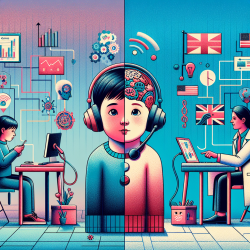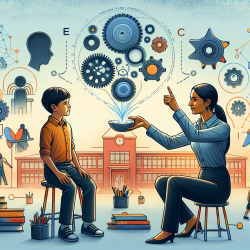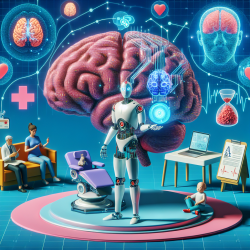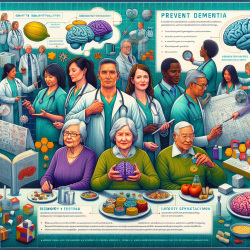Introduction
In the evolving landscape of educational and clinical practice, the integration of telemedicine has become increasingly significant. Recent research, such as the study titled "Comparing Remote Versus In-Person Assessment of Learning Skills in Children with Specific Learning Disabilities," provides valuable insights into the efficacy of remote assessments. This study is crucial for practitioners aiming to enhance their assessment techniques and improve outcomes for children with Specific Learning Disabilities (SLD).
Study Overview
The research involved 79 children, comprising 40 typically developing (TD) children and 39 children with SLD. Each child underwent a comprehensive neuropsychological battery twice: once in-person and once remotely via videoconference. The assessments covered various domains, including reading accuracy, speed, comprehension, writing, numerical processing, computation, and semantic numerical skills.
Key Findings
- No significant differences were found between in-person and remote assessments in reading accuracy, speed, numerical processing, and computation.
- Potential biases against remote assessments were noted in writing, reading comprehension, and semantic numerical sense.
- Overall, scores from in-person and remote assessments overlapped, indicating reliability in remote evaluations.
Implications for Practice
The findings suggest that remote assessments can be as reliable as in-person assessments for certain learning skills, offering a viable alternative in clinical settings. Practitioners can leverage remote assessments to enhance accessibility, especially for children in remote or underserved areas.
However, caution is advised when assessing writing, reading comprehension, and semantic numerical skills remotely. Practitioners should consider potential biases and technological limitations, such as internet stability and device compatibility, which could affect outcomes.
Encouraging Further Research
While this study provides a strong foundation, further research is essential to refine remote assessment techniques. Future studies should explore technological advancements and methodological improvements to ensure the validity and reliability of remote assessments across all learning domains.
Conclusion
Telemedicine offers promising opportunities for assessing learning skills in children with SLD. By adopting remote assessments, practitioners can improve the accessibility and efficiency of diagnostic services, ultimately enhancing educational outcomes for children. For a comprehensive understanding of the study, practitioners are encouraged to explore the original research paper.
To read the original research paper, please follow this link: Comparing remote versus in-person assessment of learning skills in children with specific learning disabilities.










